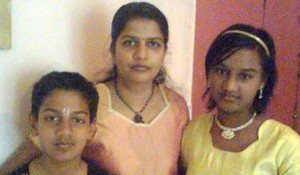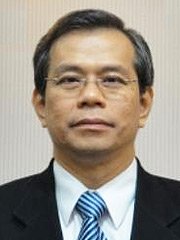Judge: One-sided conversion against international norms
- Friday, Aug 2, 2013 6:45 pm
- ENGLISH NEWS
A parent may have the right to convert to another religion, however
it does not give him or her the right to convert the underage child
without the consent of the other spouse as this is against international
convention.High Court judge Lee Swee Seng in saying this cited the
Convention on the Rights of the Child (CRC) and the Convention on All
Forms of Discrimination against Women (Cedaw).
Lee said Article 18 of the CRC state parties (nations) shall ensure that both parents have common responsibilities in the upbringing and development of their children.
 In
his judgment, Lee also found that since the children did not recite the
dua kalimah syahadah (the affirmation of faith) their conversion are
deemed null and void.
In
his judgment, Lee also found that since the children did not recite the
dua kalimah syahadah (the affirmation of faith) their conversion are
deemed null and void.
The judge said this in his written judgment in hislandmark decisionon the M Indira Gandhi case on July 25 where the court declared the three children’s conversion to Islam as null and void and unconstitutional.
A copy of the 79-page written judgment is available in loyarburok.com.
Lee also cited Article 30 of the CRC that states minorities of ethnic, religion or language should not be denied the right in the community to enjoy their culture or profess any religion or use of their own language.
 The
judge (left) also cited Article 16(1) and 5 of Cedaw where Malaysia is
also a signatory, which states that signatories are to eliminate
discrimination against women in all matters related to marriage and
family relations and both parents should have the rights and
responsibilities in the upbringing their children.
The
judge (left) also cited Article 16(1) and 5 of Cedaw where Malaysia is
also a signatory, which states that signatories are to eliminate
discrimination against women in all matters related to marriage and
family relations and both parents should have the rights and
responsibilities in the upbringing their children.
He further cited the case of pregnant teacher Noorfadila Ahmad Salikin in which the Shah Alam High Court made headlines two years’ ago, saying that since Malaysia has signed Cedaw, it gives the country the legal obligation to give effect to the rights set out on women here.
The judge also noted that Cedaw is not merely a declaration, but it has the force of law that binds member states including Malaysia
Hence, he said in arriving to the decision, the court had to interpret Articles 5, 8 and 12 of the Federal constitution according to the international norms.
“Where there are two possible interpretation of the word ‘parent’ under Article 12(4) the interpretation that best promotes our commitment to international norms and enhances basic human rights and dignity is to be preferred,” he said, in rejecting an earlier Federal Court decision in the R Subashini case.
Tolerance and respect in religion
In the Indira Gandhi case her two daughters and son had allegedly been converted to Islam by the father following the certificates issued by the Perak religious authorities.
The youngest daughter Prasana Diksa was taken by the father K Pathmanathan @ Muhammad Riduan Abdullah when she was 11 months old, and Indira has not seen her daughter since, despite an earlier court order asking the father to return her.
In overturning the conversion of the children, Lee reminded that this is not a victory but a continuing struggle for all citizens to find an equilibrium in a country with diverse ethnicities, pursuing peace in a less than homogenous society giving space to one another where religious sensitivities are concerned.
He urged the people to be tolerant and respect their neighbours in pursuit of truth and reality.
“Let god be god and let him work sovereignly in the lives of our children. Let our children be our children, and the adults they soon will become in the fullness of time.
“Let them take responsibility for their actions in seeking and finding him, though as poets say, he is not far from each one of us.
“Love, peace and harmony should reign supreme in our hearts and in our homes knowing that our differences need not divide us and that in seeking the divine, we must also seek to understand our neighbours better, confident of the fact that there is no compulsion in religion.
“Whatever faith we belong, we shall always have the highest regard for one another and desire the greatest good,” he said in ending the judgment.
And while Indira Gandhi’s lawyer M Kulasegaran (above) has urged the authorities not to appeal the verdict, Pathmanathan’s lawyer has already indicated they will file one.
Lee said Article 18 of the CRC state parties (nations) shall ensure that both parents have common responsibilities in the upbringing and development of their children.
 In
his judgment, Lee also found that since the children did not recite the
dua kalimah syahadah (the affirmation of faith) their conversion are
deemed null and void.
In
his judgment, Lee also found that since the children did not recite the
dua kalimah syahadah (the affirmation of faith) their conversion are
deemed null and void.The judge said this in his written judgment in hislandmark decisionon the M Indira Gandhi case on July 25 where the court declared the three children’s conversion to Islam as null and void and unconstitutional.
A copy of the 79-page written judgment is available in loyarburok.com.
Lee also cited Article 30 of the CRC that states minorities of ethnic, religion or language should not be denied the right in the community to enjoy their culture or profess any religion or use of their own language.
 The
judge (left) also cited Article 16(1) and 5 of Cedaw where Malaysia is
also a signatory, which states that signatories are to eliminate
discrimination against women in all matters related to marriage and
family relations and both parents should have the rights and
responsibilities in the upbringing their children.
The
judge (left) also cited Article 16(1) and 5 of Cedaw where Malaysia is
also a signatory, which states that signatories are to eliminate
discrimination against women in all matters related to marriage and
family relations and both parents should have the rights and
responsibilities in the upbringing their children.He further cited the case of pregnant teacher Noorfadila Ahmad Salikin in which the Shah Alam High Court made headlines two years’ ago, saying that since Malaysia has signed Cedaw, it gives the country the legal obligation to give effect to the rights set out on women here.
The judge also noted that Cedaw is not merely a declaration, but it has the force of law that binds member states including Malaysia
Hence, he said in arriving to the decision, the court had to interpret Articles 5, 8 and 12 of the Federal constitution according to the international norms.
“Where there are two possible interpretation of the word ‘parent’ under Article 12(4) the interpretation that best promotes our commitment to international norms and enhances basic human rights and dignity is to be preferred,” he said, in rejecting an earlier Federal Court decision in the R Subashini case.
Tolerance and respect in religion
In the Indira Gandhi case her two daughters and son had allegedly been converted to Islam by the father following the certificates issued by the Perak religious authorities.
The youngest daughter Prasana Diksa was taken by the father K Pathmanathan @ Muhammad Riduan Abdullah when she was 11 months old, and Indira has not seen her daughter since, despite an earlier court order asking the father to return her.
In overturning the conversion of the children, Lee reminded that this is not a victory but a continuing struggle for all citizens to find an equilibrium in a country with diverse ethnicities, pursuing peace in a less than homogenous society giving space to one another where religious sensitivities are concerned.
He urged the people to be tolerant and respect their neighbours in pursuit of truth and reality.
“Let god be god and let him work sovereignly in the lives of our children. Let our children be our children, and the adults they soon will become in the fullness of time.
“Let them take responsibility for their actions in seeking and finding him, though as poets say, he is not far from each one of us.
“Love, peace and harmony should reign supreme in our hearts and in our homes knowing that our differences need not divide us and that in seeking the divine, we must also seek to understand our neighbours better, confident of the fact that there is no compulsion in religion.
“Whatever faith we belong, we shall always have the highest regard for one another and desire the greatest good,” he said in ending the judgment.
And while Indira Gandhi’s lawyer M Kulasegaran (above) has urged the authorities not to appeal the verdict, Pathmanathan’s lawyer has already indicated they will file one.
Comments
Post a Comment